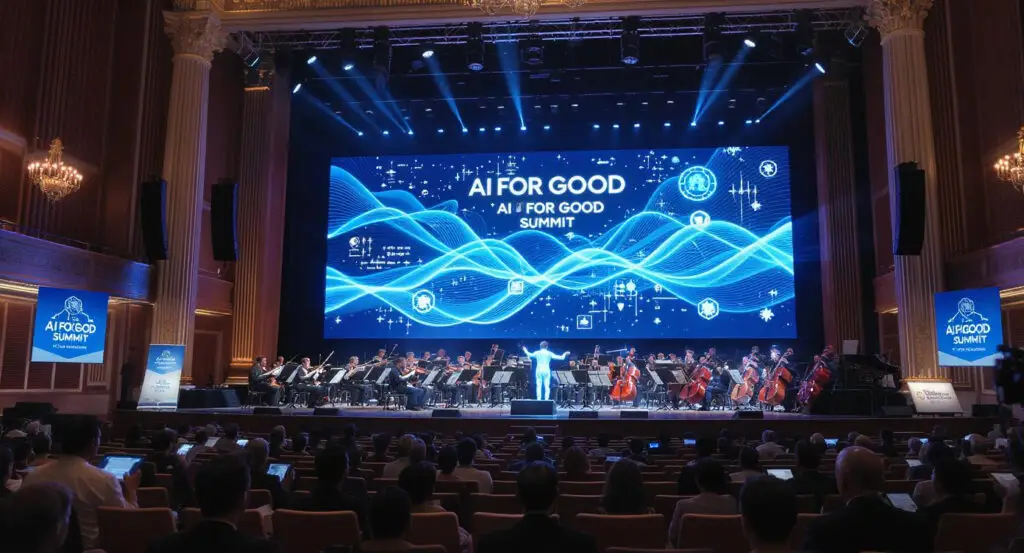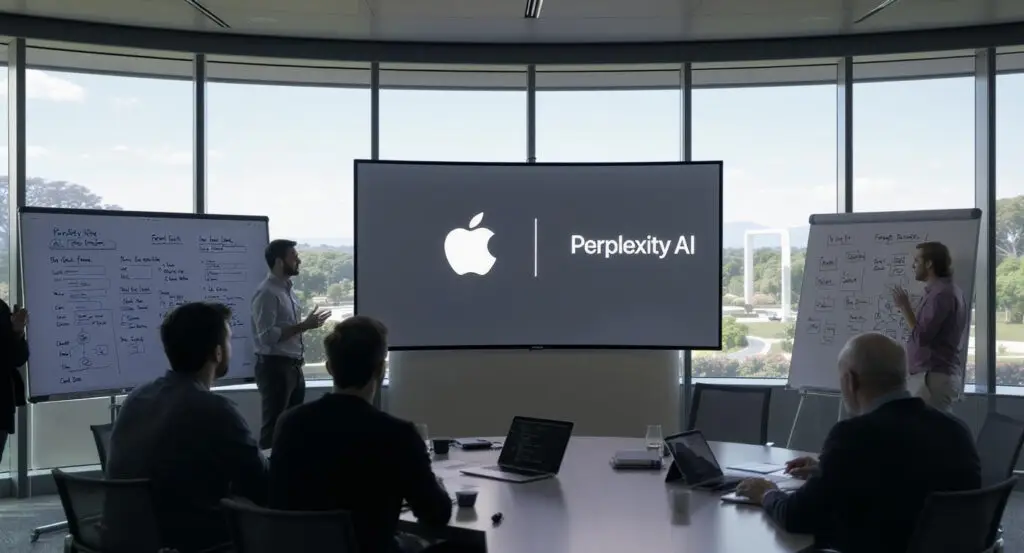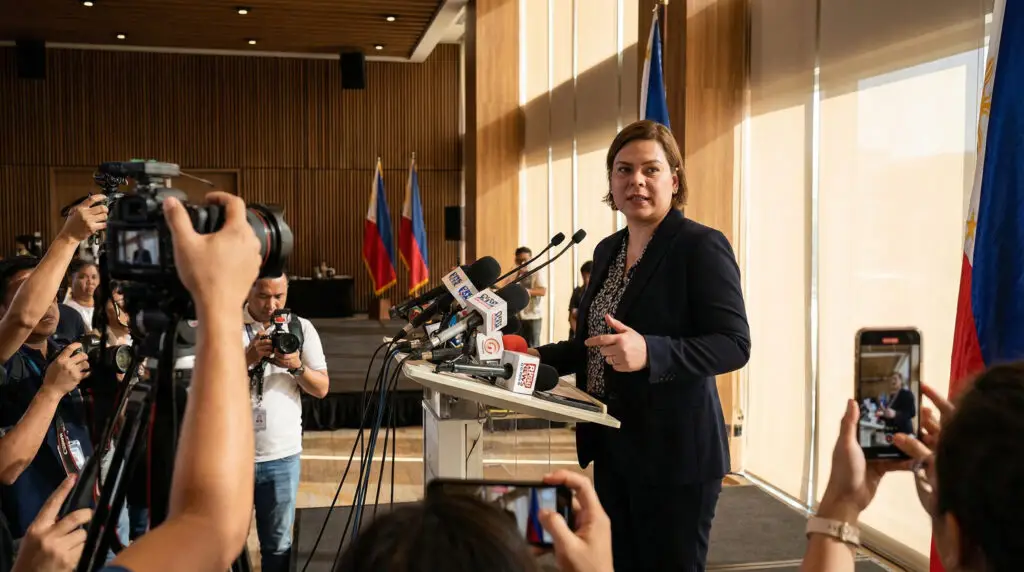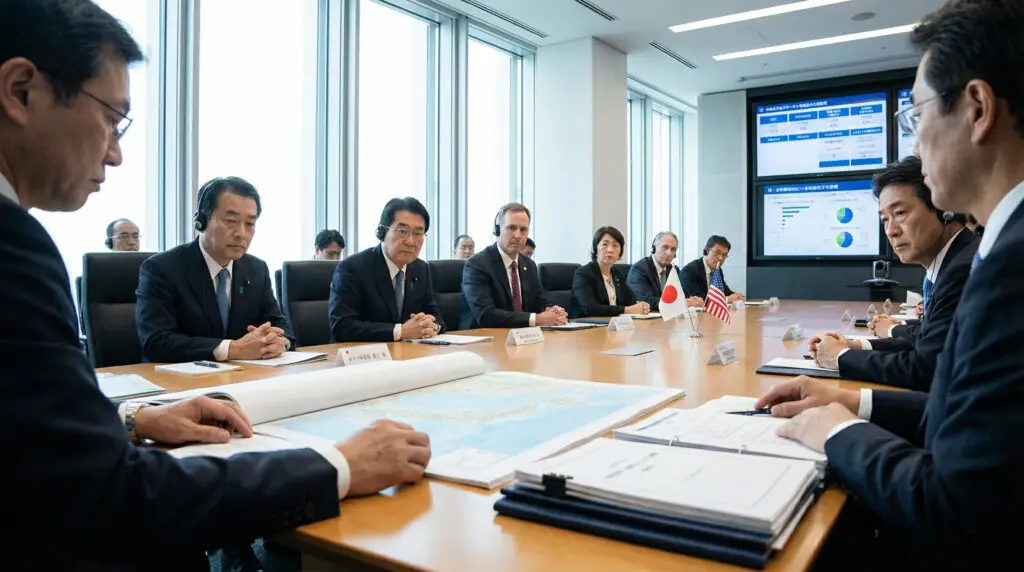A classical music concert unlike any other is set to take the global stage this July in Geneva. Re.imagine, Vietnam’s first classical concert series blending music with real-time generative visuals and artificial intelligence, has been chosen to officially open the United Nations’ AI for Good Global Summit and mark the 80th anniversary of the UN.
For its creators, the selection is more than a milestone it’s a moment of cultural and technological convergence that redefines how music is experienced.
“This isn’t just a concert,” said Trung Bảo, co-founder of the multimedia art collective Fustic.Studio. “It’s a living, emotional dialogue between tradition and transformation.”
A Vision Years in the Making
The brainchild of Vietnamese composer and conductor Nguyễn Thiện Minh, Re.imagine had been evolving quietly for seven years before finding its moment. The concept found its technological and creative counterpart in Fustic. Studio, a multidisciplinary team with a mission to shape cultural experiences through creative technology.
“When Minh shared his vision, there was an immediate connection,” Bảo recalled. “We all wanted to challenge the notion that classical music is static or reserved for the elite. We wanted to bring it alive for everyone.”
Their collaboration transformed traditional performance into an immersive, multisensory environment where sound, image, and gesture interact in real time.
Music That Paints the Air
What sets Re.imagine apart is its custom-built system that translates sound and movement into live visual art. Instead of pre-rendered effects, the system captures audio and performer motions bowing, posture, and phrasing and converts them into dynamic projections.
“We were inspired by Impressionist art,” Bảo explained. “The visuals respond to the ephemerality of music, changing with each note, like brushstrokes in motion.”
The system combines live audio analysis, motion tracking, and machine learning trained on classical painting and natural forms. Musicians aren’t just playing instruments; they’re co-creating the visual narrative in real time.
Months of trial and iteration were required to ensure the system felt natural for performers while remaining artistically expressive. The result is a seamless fusion of old and new, where each performance is a one-of-a-kind experience.
Introducing AI as a Musical Collaborator
At the UN event, Re.imagine will present Resonant Augmenta, a piano quintet that explores how humans and intelligent systems can co-create. Co-composed by Minh and Emil Huckle-Kleve, the piece unfolds in three movements: connection, learning, and co-creation.
The twist: the pianist is an AI.
“It’s not just there for novelty,” said Bảo. “Sometimes it feels aligned with the humans, other times detached. That ambiguity is intentional; it reflects the evolving nature of human-machine collaboration.”
The performance challenges audiences to consider the role of AI in the arts not as a tool, but as a presence with agency and emotional resonance.
Changing How We Experience Classical Music
At its heart, Re.imagine is a project about access and emotional connection. By using interactive technology, it invites wider audiences, especially younger generations and those unfamiliar with classical music, to engage with the form in a new way.
“We want people to feel like they’re stepping inside a living painting,” Bảo said. “It’s about making classical music feel immediate, accessible, and deeply human.”
The project also redefines the role of the musician, shifting from interpreter to co-creator. The visuals react to each performance’s subtle variations, turning every show into a surprise.
“Surprise is essential,” Bảo noted. “It’s what makes Re.imagine feel alive.”
A Global Debut with Local Heart
As the first Vietnamese act ever selected to open the UN’s flagship AI and sustainability event, Re.imagine marks a major moment not just for its creators, but for Vietnamese innovation on the global stage.
What began as a quiet vision is now a model of what’s possible when cultural heritage meets cutting-edge technology.
“If we can inspire even one artist to explore cross-disciplinary formats or one listener to see classical music differently, that’s a meaningful shift,” Bảo said. “That’s where real change begins.”























